In November 2023, Churchill County contracted with Winged Wolf Innovations to complete the required Opioid Misuse Needs Assessment, which is necessary to be eligible for further Opioid Settlement Funds.
Winged Wolf Innovations is a consulting firm that provides administrative and general management consulting services and has completed the Churchill County Opioid Misuse Needs Assessment.
Social Services Director Shannon Ernest presented key findings from the assessment to the Board of Commissioners during their May 2 meeting.
In short, the assessment revealed some concerning facts about opioids in Churchill County:
- Physicians prescribe most opioids in the county for pain management
- Of current or previous users, 80% were not seeking help due to reasons like fear of withdrawal, societal judgment, and lack of support
- Overall dependency has been decreasing in the county
- Last year, Churchill County had markedly higher suspected drug-related overdoses compared to the overall state average. Men, particularly young white men, are more likely to suffer opioid poisoning (overdose) in Churchill County
- Overdoses and crimes encountered have been rising
- Opioid-related deaths have remained relatively stable
- Medication-assisted treatment (MAT) has not been fully utilized despite its reported effectiveness.
According to Winged Wolf, many challenges, such as job loss, financial instability, and fear of losing custody of their children, were identified as barriers when considering treatment. Childhood trauma, lack of activities, and familial influence were cited as factors for opioid use.
Sixty percent of survey respondents felt there were not enough resources to address opioid use, while 20% were aware of available community resources. Additionally, participants who were aware of community resources expressed concerns about the challenges of admission criteria for treatment centers.
Several previous users and current users of opioids reported that stigma is the primary barrier to seeking treatment, with participants expressing reluctance due to fear of judgment and societal perceptions. According to the assessment, opioid users said they felt misunderstood and unsupported by society, including family members, and faced challenges accessing treatment due to stigma and fear of consequences.
As part of the assessment, Winged Wolf identified some policy measures that could help address some of these concerns. Some recommendations include increased funding for treatment programs, more stringent prescription policies, harm reduction procedures, and criminal justice reform.
These suggestions, however, do not address some of the most significant challenges, such as stigma and insufficient resources for opioid users seeking assistance. “Bureaucracy was identified as a barrier to addressing opioid use and misuse within Churchill County, potentially hindering the implementation of effective intervention,” wrote Winged Wolf.
Medicated Assisted Treatment (MAT) is considered a highly effective treatment option. However, access is limited in Churchill County, as few local treatment providers offer access. Further, the stigma surrounding MAT, stringent regulations, and limited awareness of MAT effectiveness result in its underuse.
While MAT may offer efficacy, challenges exist with its practical application. According to the assessment, “limited resources, logistical challenges in adjusting plans, and the complexity of addressing co-occurring conditions. Providers face challenges maintaining patient engagement, geographic barriers, limited access to services, and funding limitations for follow-up programs.
Despite the challenges, about 50% of survey respondents felt that medicated-assisted treatment was effective and a viable option when addressing opioid misuse. “That suggests that the providers in Churchill County have generally seen a non-negative impact of use of MAT,” wrote Winged Wolf, who suggested implementing MAT locally.
Mental health is another important consideration when addressing opioid addiction. Winged Wolf reported that almost 67% of respondents said accessible treatment centers were lacking in addressing opioid use and its consequences. Co-occurring mental health issues and opioid addiction are happening in Churchill County, but the mental health facilities are not equipped to help deal with those co-occurring issues.
While stigma and fears are obstacles that users face when seeking treatment, Churchill County’s most significant barriers to reducing opioid misuse are related to a lack of access to effective treatment.
Despite the consequences, opioid use continues to cause far-reaching and damaging outcomes for both users and the community. Stay posted for Part III, which will include insights on student heroin use, drug diversion programs, restorative justice, and more overall recommendations.
To read Part I, https://www.thefallonpost.org/article/6334,opioid-misuse-assessment-highlights-local-challenges-part-i


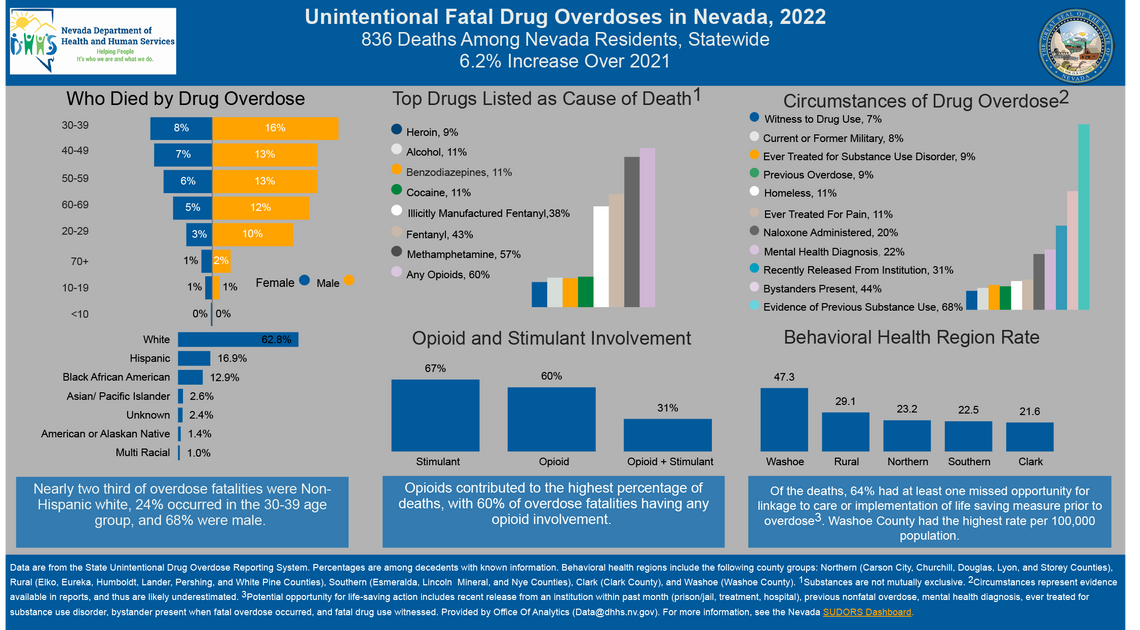
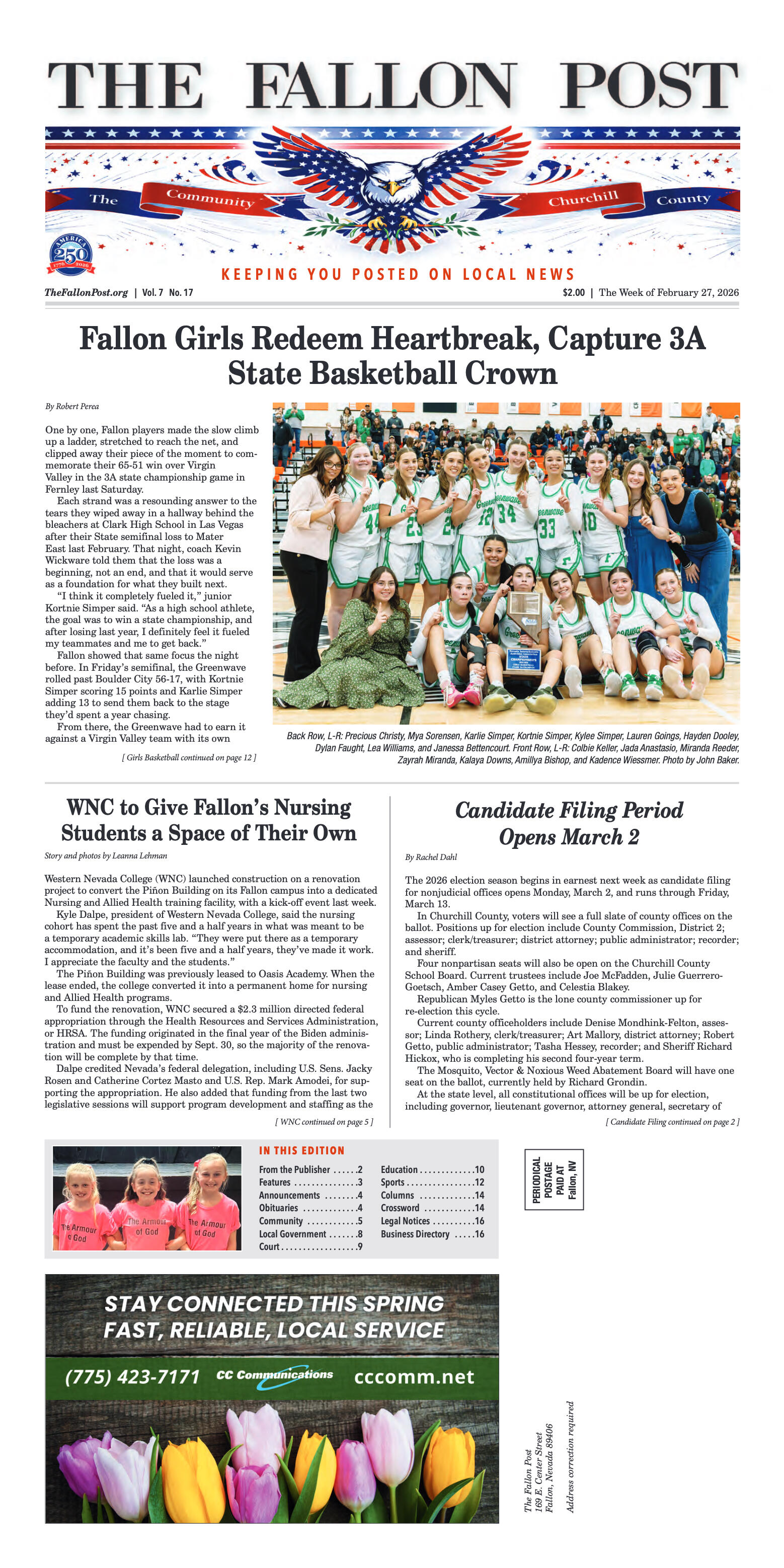
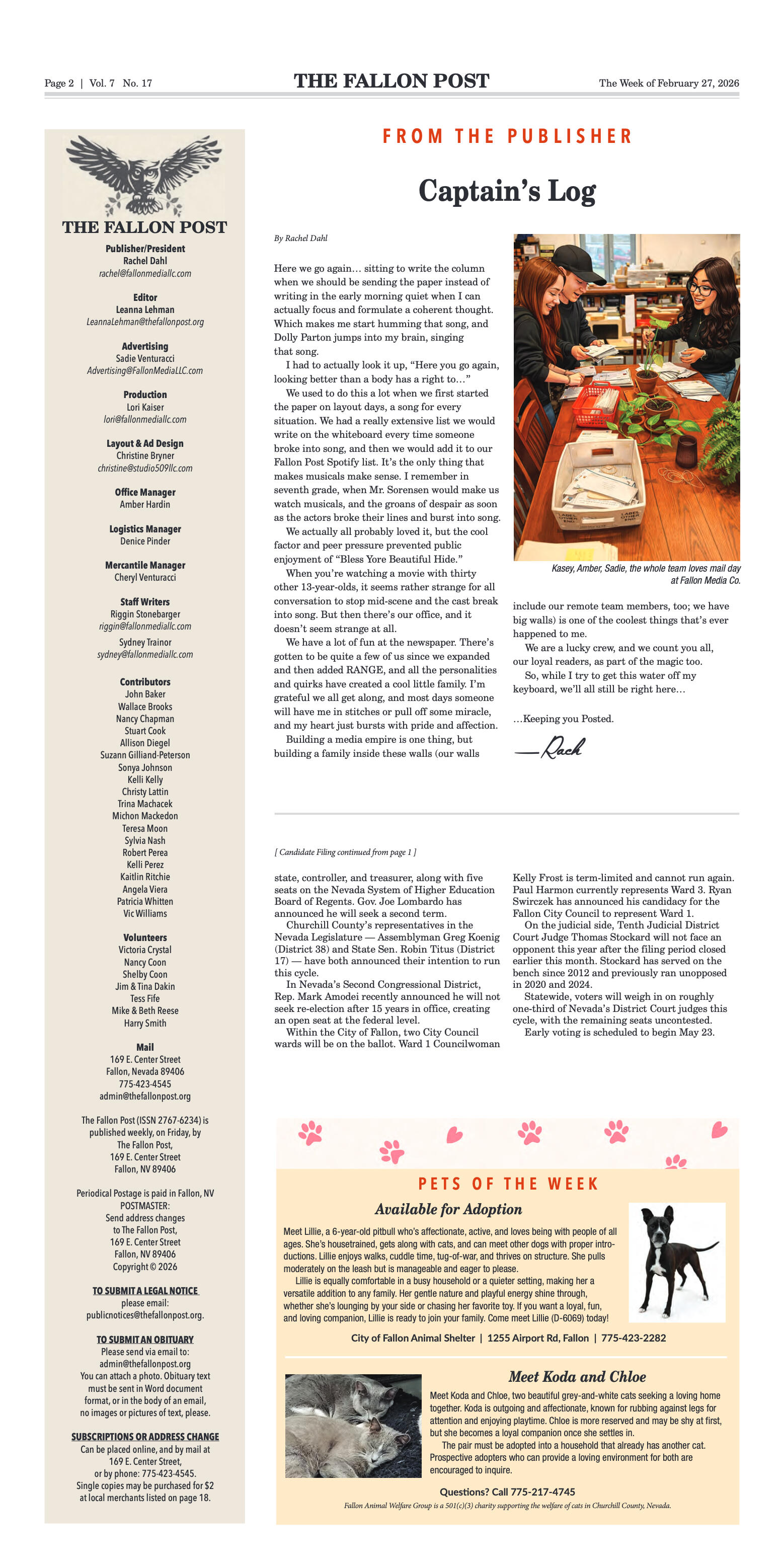
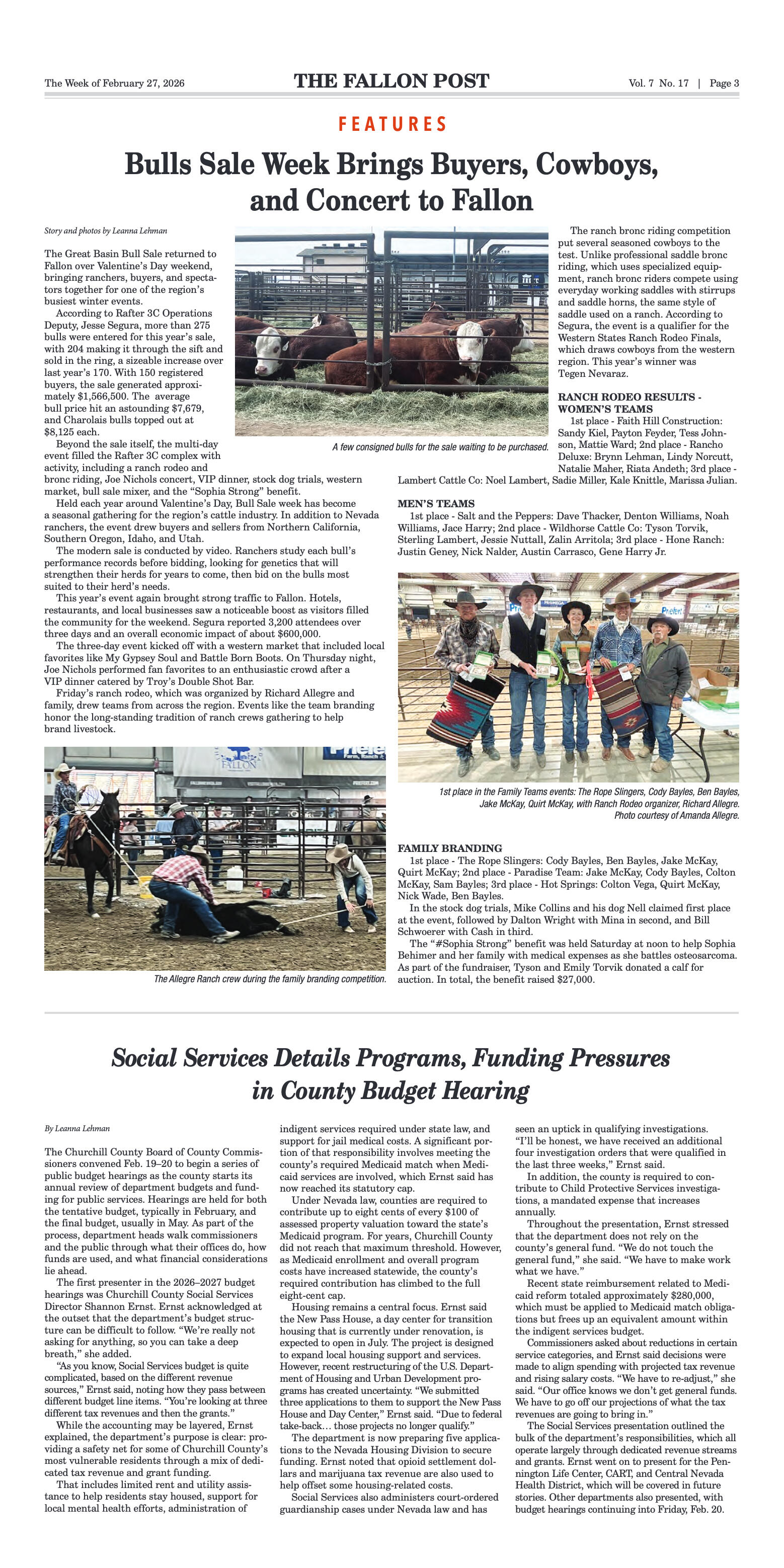
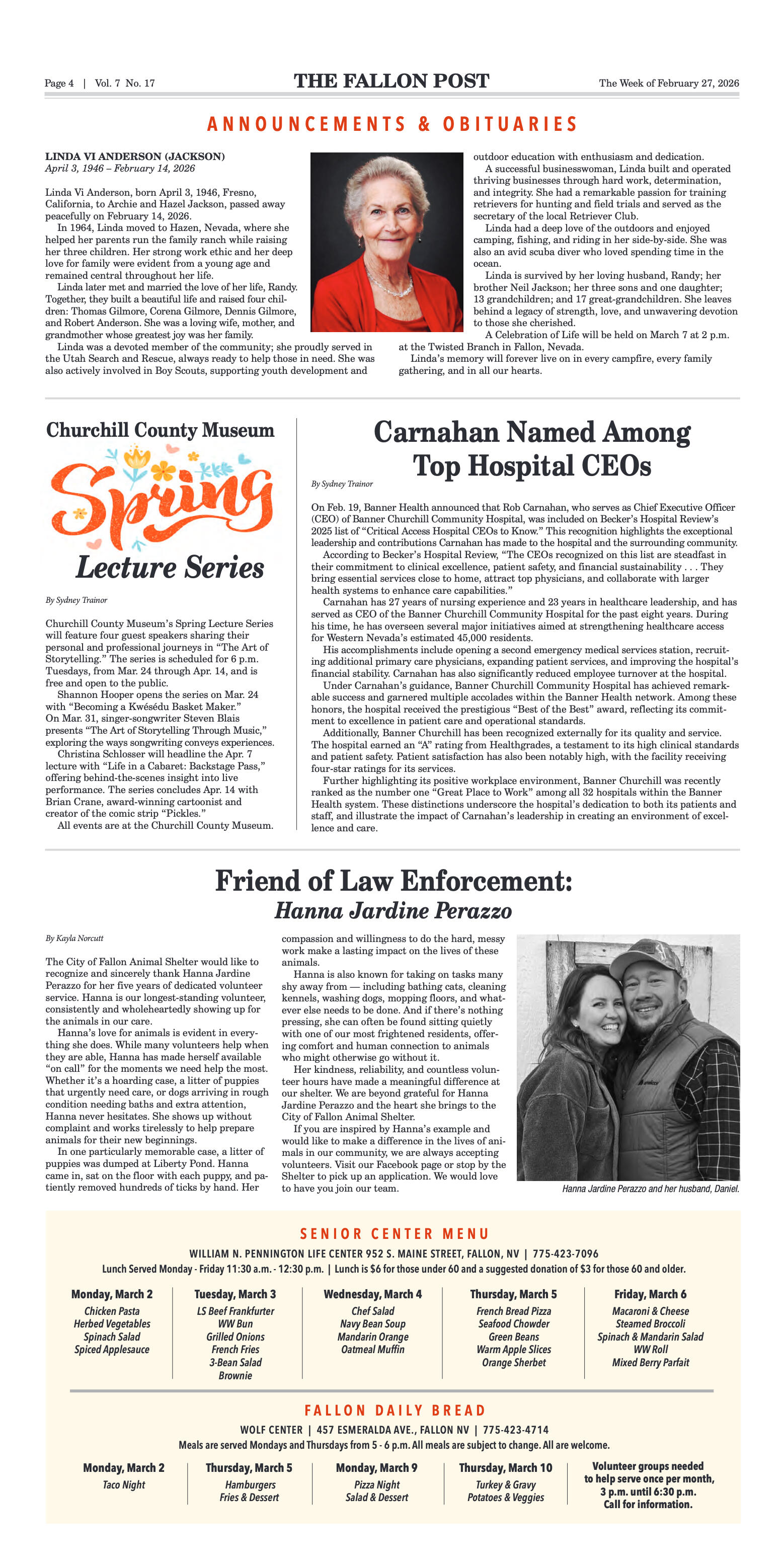
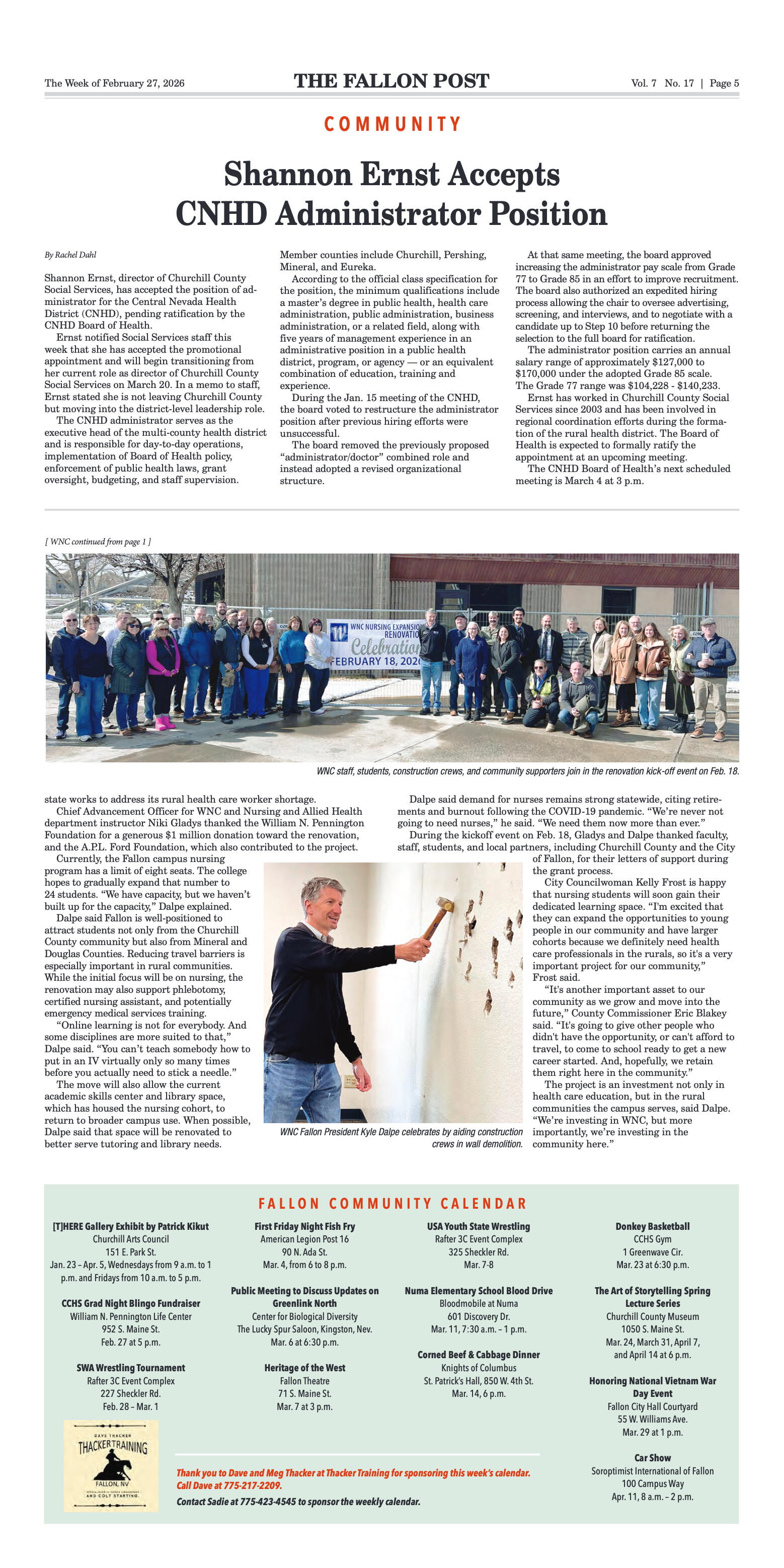
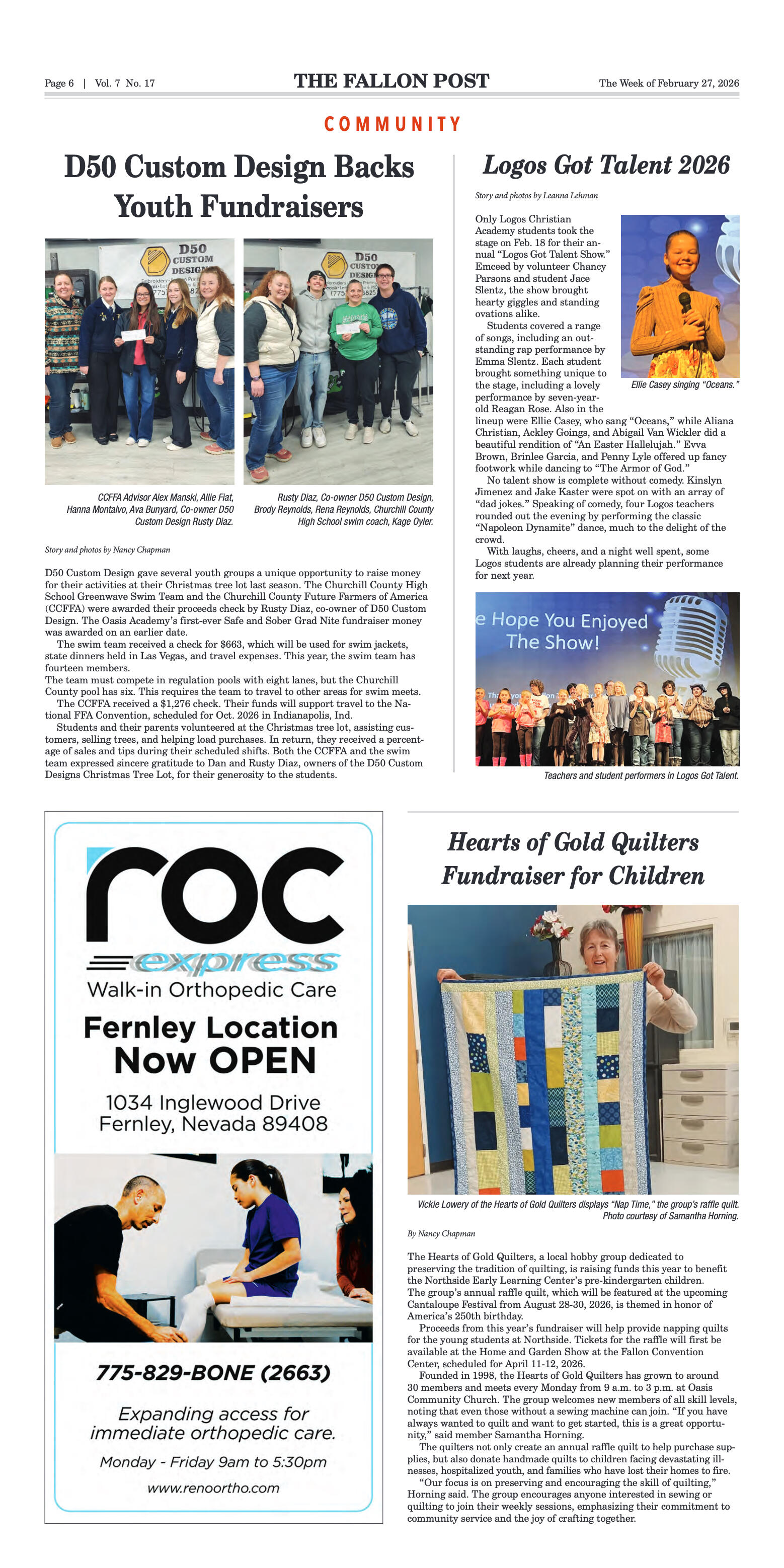

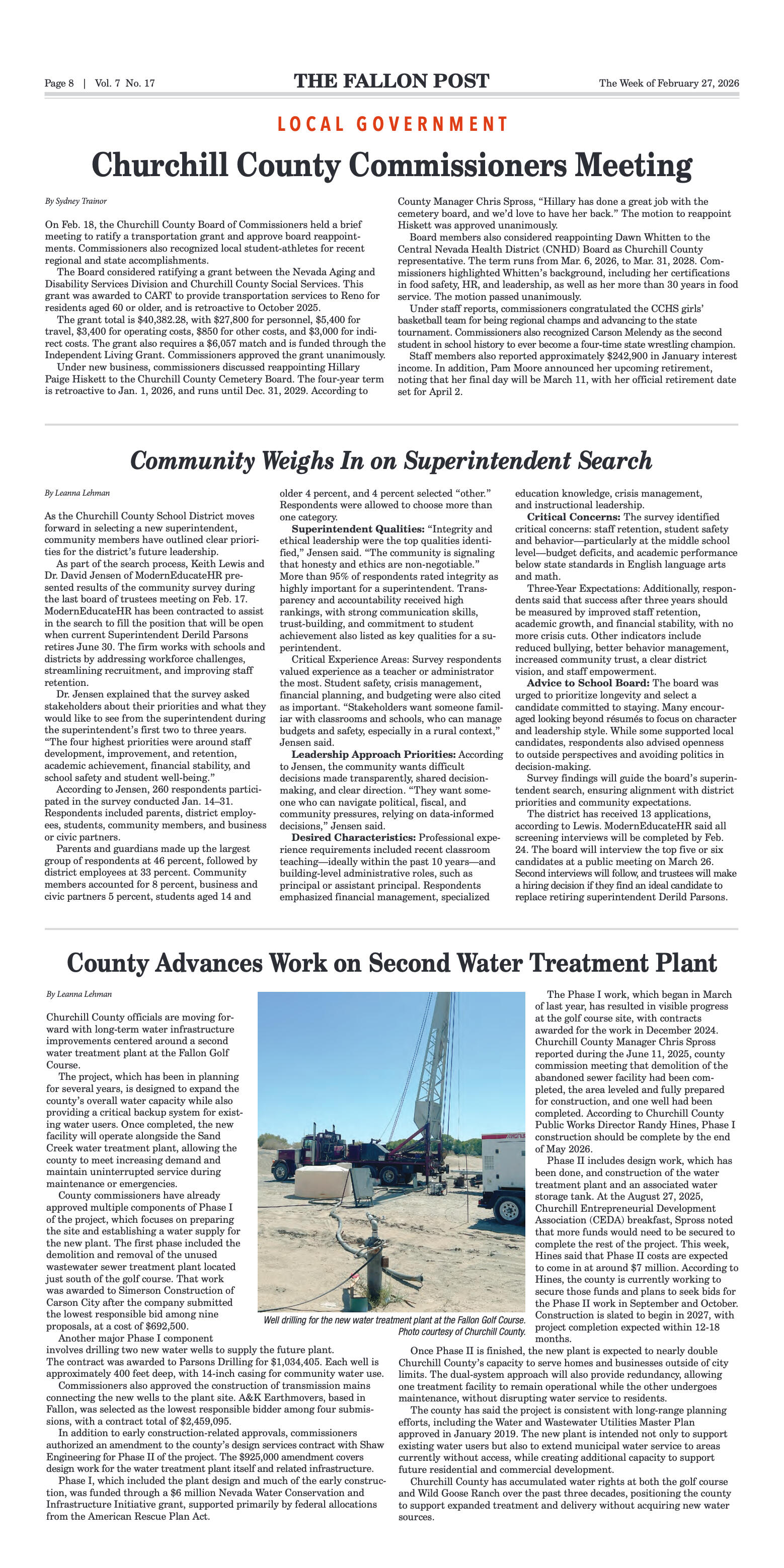
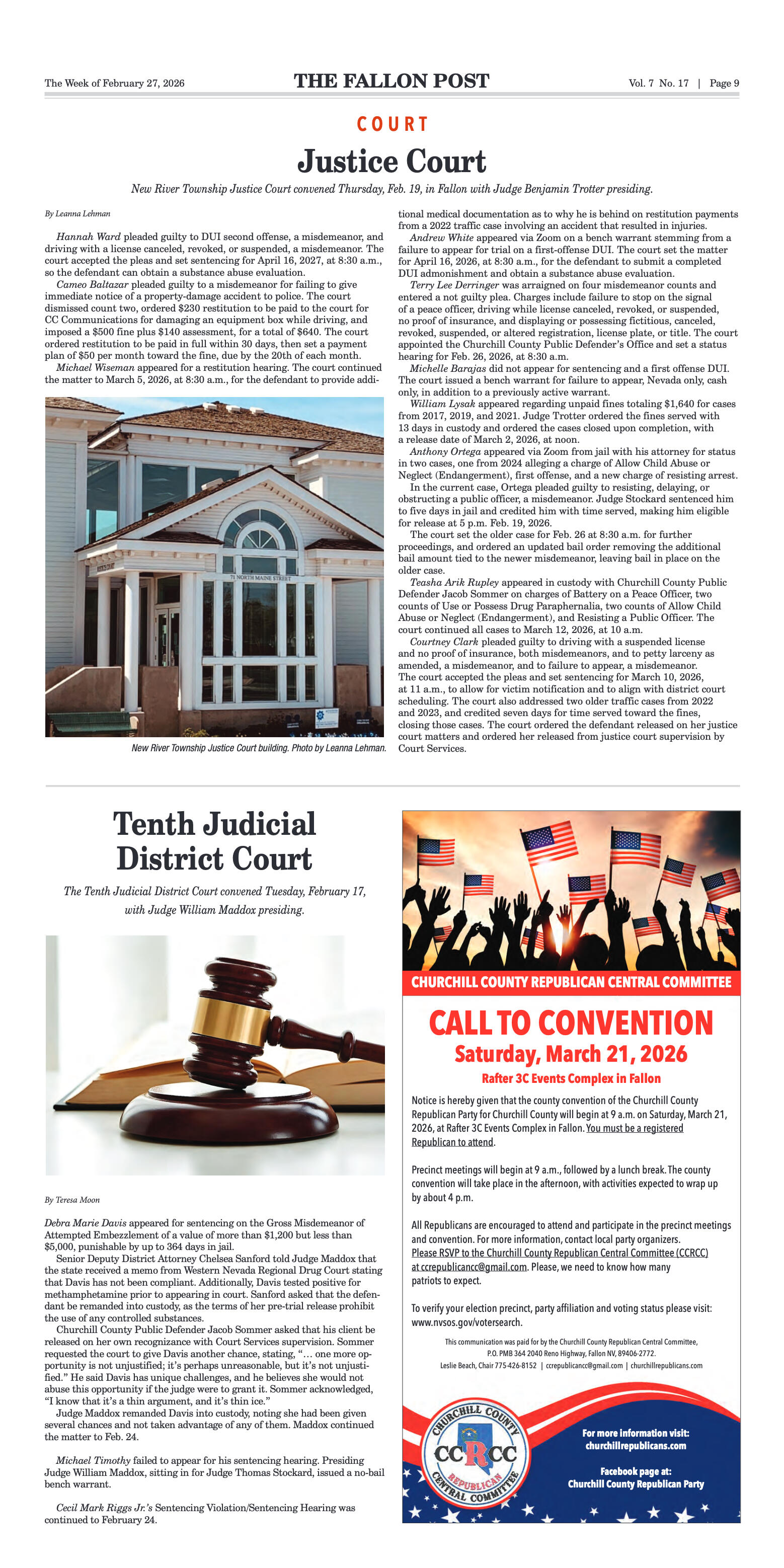
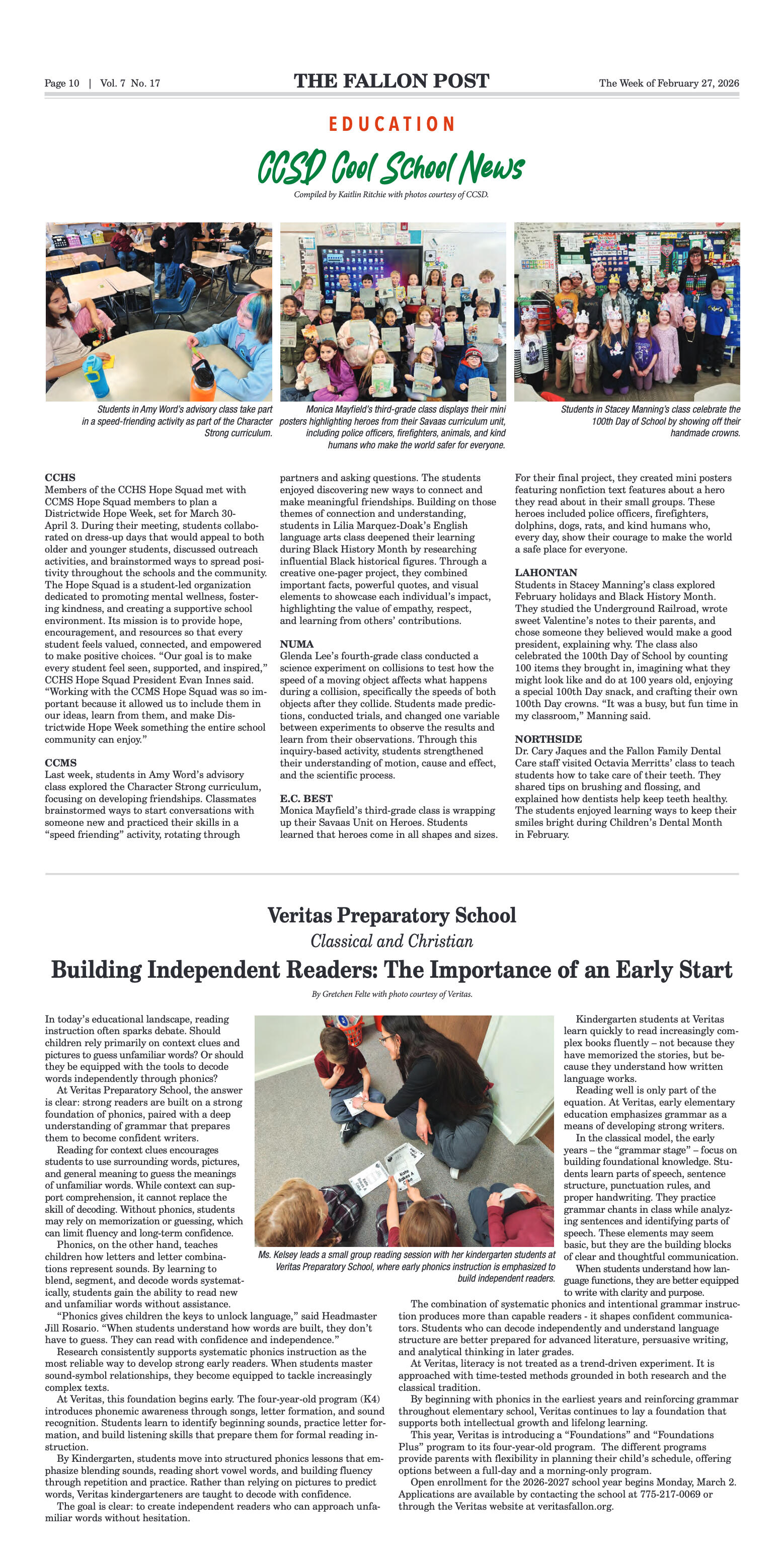
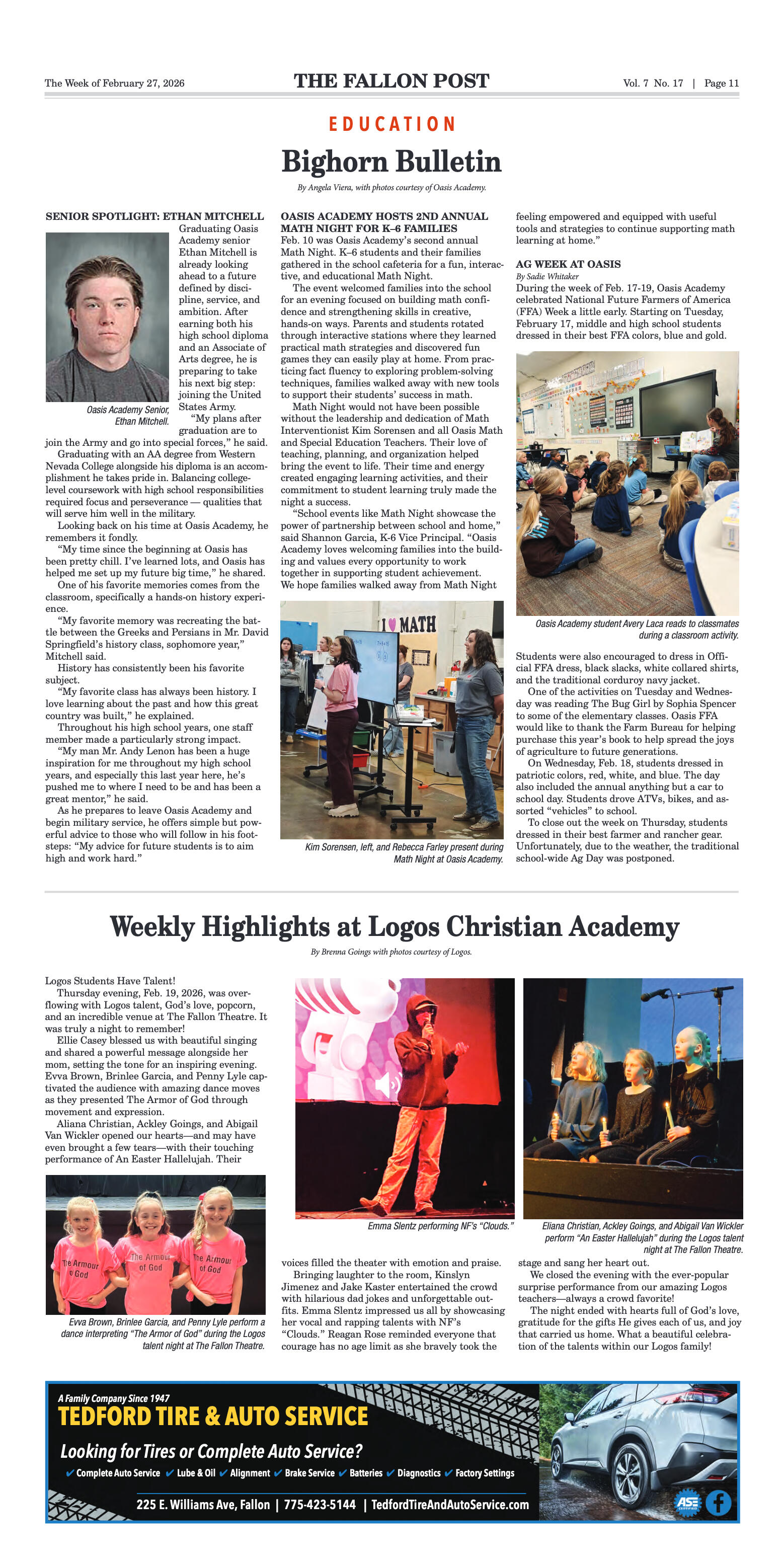


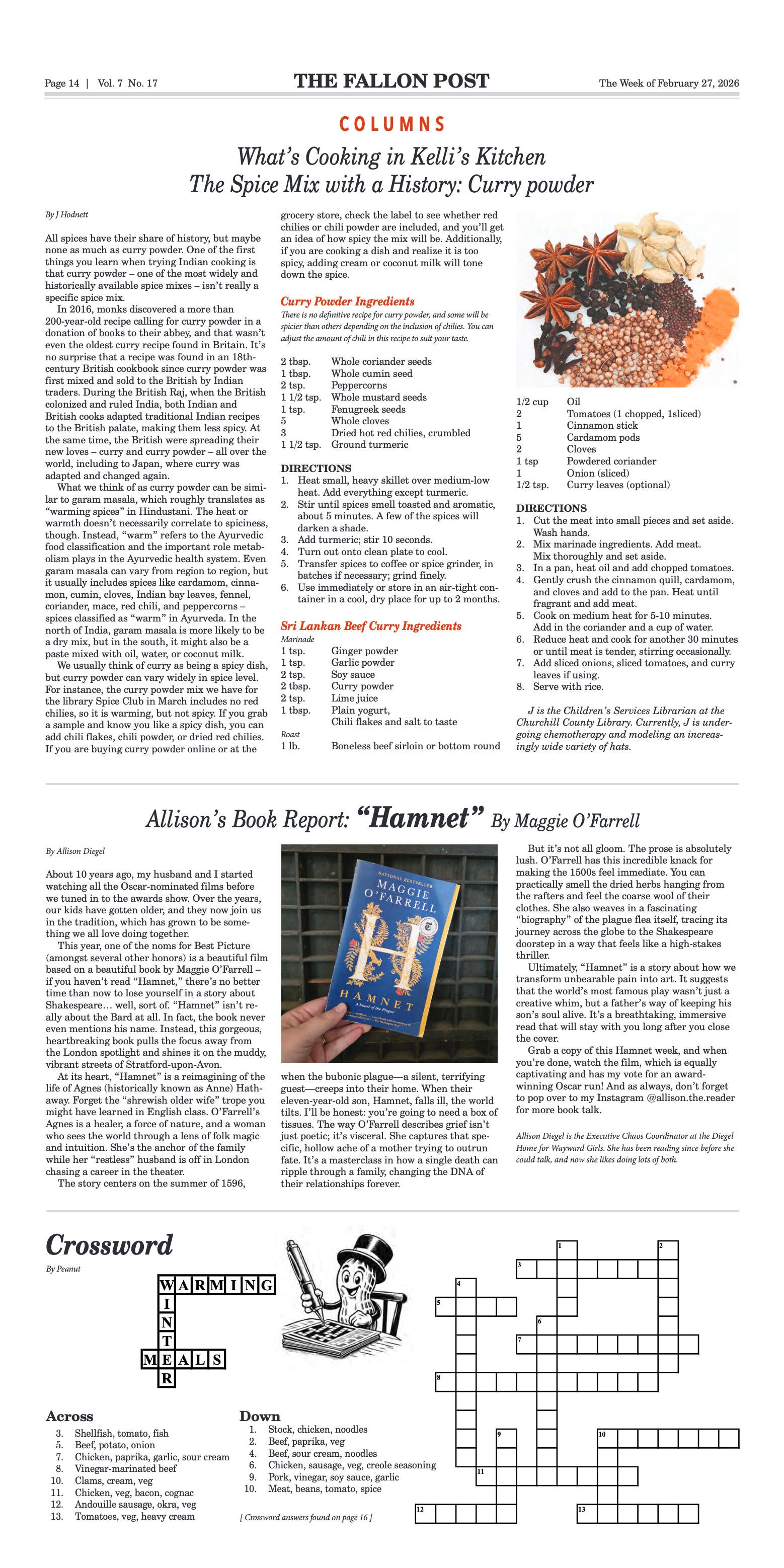
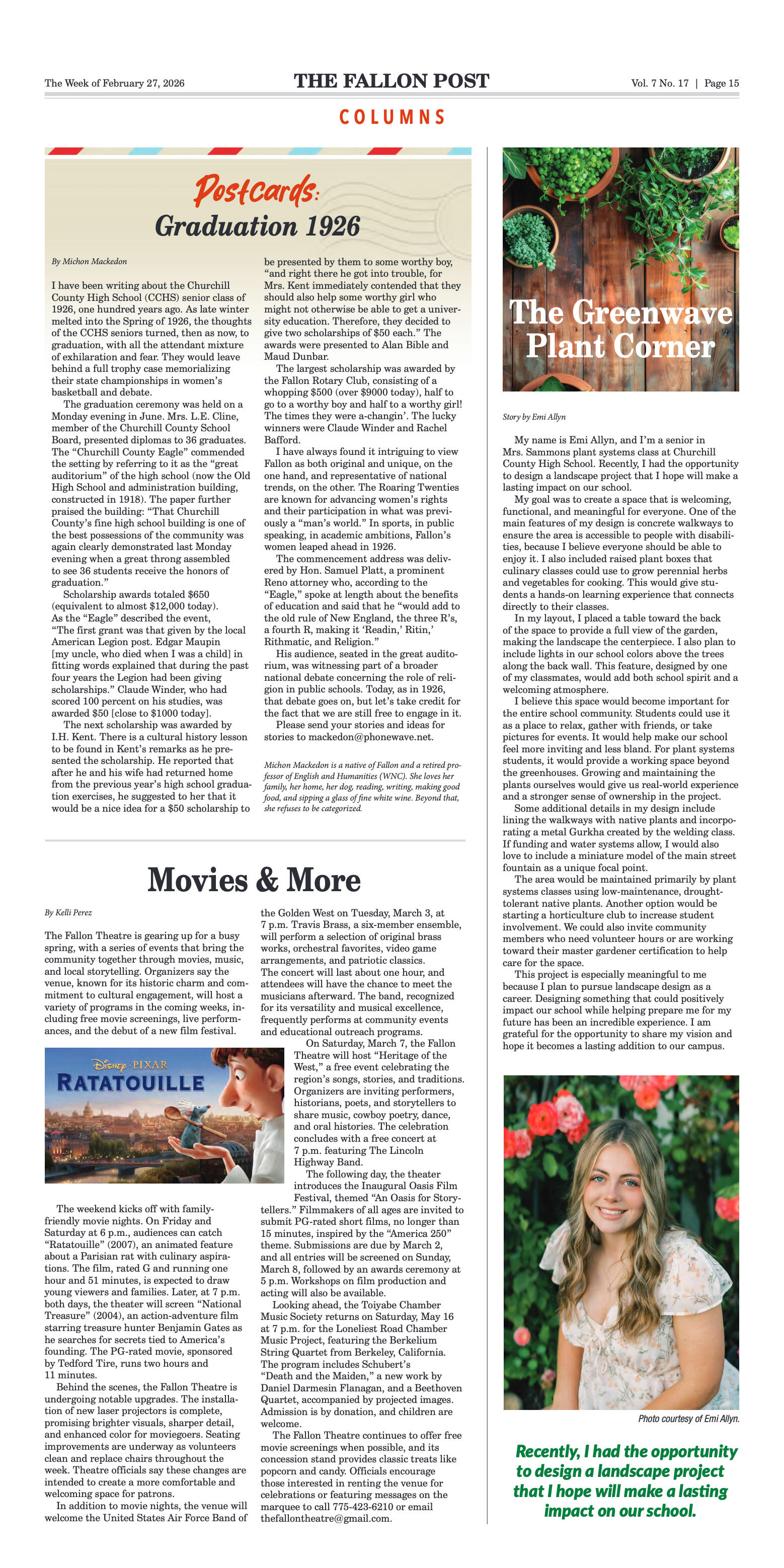



























Comment
Comments